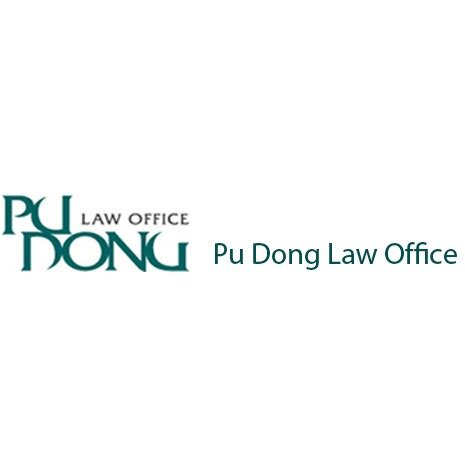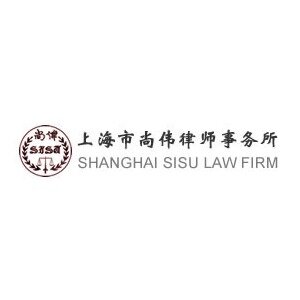Best Constitutional Law Lawyers in China
Share your needs with us, get contacted by law firms.
Free. Takes 2 min.
Or refine your search by selecting a city:
List of the best lawyers in China
About Constitutional Law in China
The Constitution of the People's Republic of China serves as the fundamental legal document that outlines the framework of government, the political structure, and the fundamental rights and duties of citizens. Enacted on December 4, 1982, and subsequently amended several times, China's Constitution establishes the guiding principles for state operations and the foundation for legal and social systems. It enshrines the leadership of the Communist Party of China and sets out ideals such as socialist rule of law, with emphasis on the people's democratic dictatorship, equality, and unity.
Why You May Need a Lawyer
Engaging with Constitutional Law matters can be complex. Individuals and organizations may seek legal assistance for several reasons, including:
- Challenging or seeking clarification on the constitutionality of laws or regulations.
- Protection of fundamental rights guaranteed under the Constitution, such as freedom of speech, assembly, or religion.
- Involvement in civil rights cases or public interest litigation.
- Engagement with governmental or administrative bodies on constitutional matters.
- Ensuring compliance with constitutional mandates during the development of policies or initiatives.
Local Laws Overview
In China, Constitutional Law broadly intersects with administrative laws and various governmental decrees. Key aspects include:
- The supremacy of the Constitution within the Chinese legal system.
- The role and power of the National People's Congress as the highest state body and the primary organ for constitutional interpretation.
- The incorporation of laws addressing national security, territorial integrity, and social stability.
- Mandates regarding the protection of state-owned enterprises and socialistic public welfare systems.
Frequently Asked Questions
What is the process for amending the Chinese Constitution?
The Constitution of China can only be amended by the National People's Congress through a robust voting process requiring a two-thirds majority approval from all members.
Who interprets the Constitution in China?
The Standing Committee of the National People's Congress is authorized to interpret the Constitution in China, with additional input from the Communist Party of China.
Are judicial reviews allowed in China for constitutional matters?
Judicial review as understood in many Western countries is limited in China. While courts can interpret laws, they do not possess the authority to question legislative decisions concerning constitutional matters.
What rights are guaranteed by the Chinese Constitution?
The Constitution guarantees various rights, such as equality before the law, freedom of speech, press, assembly, association, procession, demonstration, and freedom of religious belief, within the framework of socialist rule of law.
Can citizens challenge laws that they believe are unconstitutional?
Individuals may submit petitions or seek other administrative remedies, although challenging laws directly through judicial channels is challenging due to the absence of a constitutional court.
Is there a constitutional court in China?
No, China does not have a separate constitutional court. The National People's Congress and its Standing Committee are primarily responsible for constitutional interpretation.
How does the Chinese Constitution protect private property rights?
The Constitution acknowledges and protects private property rights within its defined public ownership framework, with certain amendments enhancing this protection under socialist market economy policies.
What role does the Communist Party play in Constitutional Law?
The Communist Party of China (CPC) leads the country's political system, with its role and leadership enshrined in the Constitution, influencing both law interpretation and implementation.
Are there limitations on fundamental freedoms in the Constitution?
Yes, freedoms such as speech, assembly, and religion are subject to restrictions beyond certain limits to safeguard state security, unity, and public order.
How can constitutional rights be enforced?
Enforcement typically involves administrative or political avenues, and citizens may seek redress through complaint mechanisms organized by governmental or party bodies.
Additional Resources
For further information and support, the following resources may be particularly helpful:
- The National People's Congress and its Standing Committee, which offer information on constitutional matters and legislation.
- The Ministry of Justice of the People's Republic of China for governance of legal practices.
- Legal aid centers across various provinces offer free services to individuals in need of legal advice.
- Universities and research institutions with a focus on constitutional and administrative law.
Next Steps
If you require legal assistance in Constitutional Law, consider the following steps:
- Consult with a legal professional specializing in Constitutional Law for a better understanding of your rights and obligations.
- Contact legal aid services if you need low-cost or free legal advice.
- Engage with governmental resources or administrative bodies for official guidance.
- Participate in forums or groups dedicated to constitutional discussions to understand diverse perspectives.
Lawzana helps you find the best lawyers and law firms in China through a curated and pre-screened list of qualified legal professionals. Our platform offers rankings and detailed profiles of attorneys and law firms, allowing you to compare based on practice areas, including Constitutional Law, experience, and client feedback.
Each profile includes a description of the firm's areas of practice, client reviews, team members and partners, year of establishment, spoken languages, office locations, contact information, social media presence, and any published articles or resources. Most firms on our platform speak English and are experienced in both local and international legal matters.
Get a quote from top-rated law firms in China — quickly, securely, and without unnecessary hassle.
Disclaimer:
The information provided on this page is for general informational purposes only and does not constitute legal advice. While we strive to ensure the accuracy and relevance of the content, legal information may change over time, and interpretations of the law can vary. You should always consult with a qualified legal professional for advice specific to your situation.
We disclaim all liability for actions taken or not taken based on the content of this page. If you believe any information is incorrect or outdated, please contact us, and we will review and update it where appropriate.
Browse constitutional law law firms by city in China
Refine your search by selecting a city.












